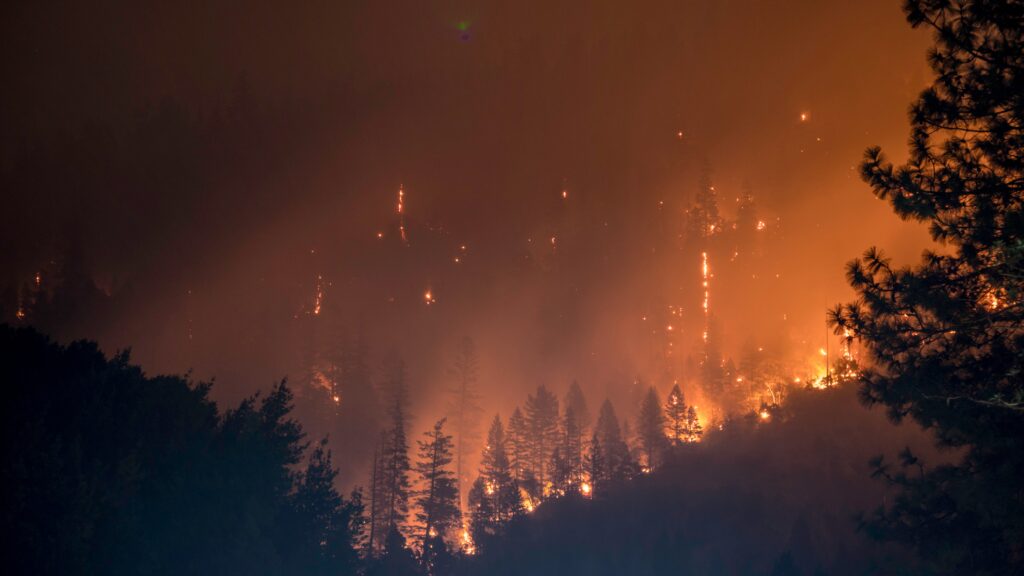
The term “global boiling” refers to the progressively severe occurrence of global warming. Global boiling was initially introduced by António Guterres, the Secretary General of the United Nations (UN), during a speech at the UN Headquarters in New York in July 2023.
Guterres asserts that the current state of the Earth no longer aligns with the era of global warming, but rather signifies the commencement of the era of global boiling. This contentious statement arose subsequent to the release of the most recent report from the World Meteorological Organization (WMO) and the European Commission’s Copernicus Climate Change Service.
According to this report, July 2023 is projected to be the hottest month in recorded history.
The WMO report highlights that the global average temperature for July 2023 surpassed the pre-industrial temperature by 1.41℃.
Consequently, this unprecedented heat has resulted in heatwaves and forest fires, particularly in countries located in the northern hemisphere.
Global Boiling Impacts for Humans and Environment
Global boiling is a serious threat to human health and the environment. This condition cannot be taken lightly as it has detrimental effects on life on Earth.
The following are some negative impacts of the global boiling era that need to be taken into consideration.
In general, the effects of global boiling are almost similar to the effects of global boiling on humans. This can increase the risk of various health disorders.
Some potential health disorders that may arise due to global boiling are as follows.
- Heatwaves and elevated air temperatures have the potential to heighten the susceptibility to heat-related ailments, including heat exhaustion and heat stroke.
- The escalating levels of humidity in the atmosphere can amplify the vulnerability to waterborne infectious diseases, such as diarrhea, cholera, and typhoid fever.
- Fauna acting as carriers for diseases, such as mosquitoes, exhibit enhanced survival rates in warmer climates, consequently augmenting the likelihood of malaria and dengue hemorrhagic fever.
- Elevated levels of pollutants in the air, acting as catalysts for the greenhouse effect, can instigate respiratory complications, such as acute respiratory infections (ARI) and asthma.
The adverse consequences of global boiling on environmental sustainability are manifold, extending beyond the realm of human beings to encompass the entire ecosystem, encompassing animals and plants alike.
- The escalation of sea levels, attributed to elevated temperatures, has the potential to disrupt both infrastructure and communities residing in coastal regions.
- The extinction of specific fauna and flora species, unable to acclimate to warmer atmospheric temperatures, is a concerning outcome.
- The ecological system is at risk of damage due to the impact of warmer temperatures and unpredictable precipitation patterns.
- The escalation of temperatures and alterations in rainfall patterns can lead to food insecurity, making it challenging for humans to cultivate crops and rear livestock.
The primary cause of global boiling is the emission of greenhouse gasses into the atmosphere. These gasses have the ability to trap heat from the sun, leading to an elevation in the Earth’s temperature.
Human activities are the predominant source of greenhouse gas emissions. The utilization of fossil fuels, such as coal and oil, represents the largest contributor to these emissions.
Should We Worry About Global Boiling? Here are Tips to Mitigate Worst Impact!
To mitigate the impact of global boiling, the following measures can be adopted:
- Restrict the usage of motorized vehicles and opt for alternative modes of transportation such as walking, cycling, or utilizing public transportation more frequently.
- Decrease the consumption of single-use plastics and implement the principles of the 3R approach (reuse, reduce, recycle) to minimize the amount of waste generated on our planet.
- Conserve energy by switching off lights when leaving a room and unplugging electronic devices when they are not in use.
The mitigation of the effects of climate change can be achieved by ensuring that forthcoming generations are able to enjoy a life of prosperity on our planet. Using sustainable fashion and lifestyle also becomes mitigation for global boiling. With Upshecle, you can promote sustainability that is driven by the ambition to foster a more sustainable way of living on Earth.
In order to establish a circular economy, Upshecle endeavors to empower marginalized women in workshop areas through the processes of design, sourcing, and crafting of goods. Furthermore, the brand engages in collaborations with local artisans and small farmers from diverse regions in Indonesia, with the aim of creating distinctive designs and enduring styles that bring about a positive influence on the community. We invite you to discover our range of products.
References:
- https://www.activesustainability.com/climate-change/global-boiling/
- https://news.un.org/en/story/2023/07/1139162
